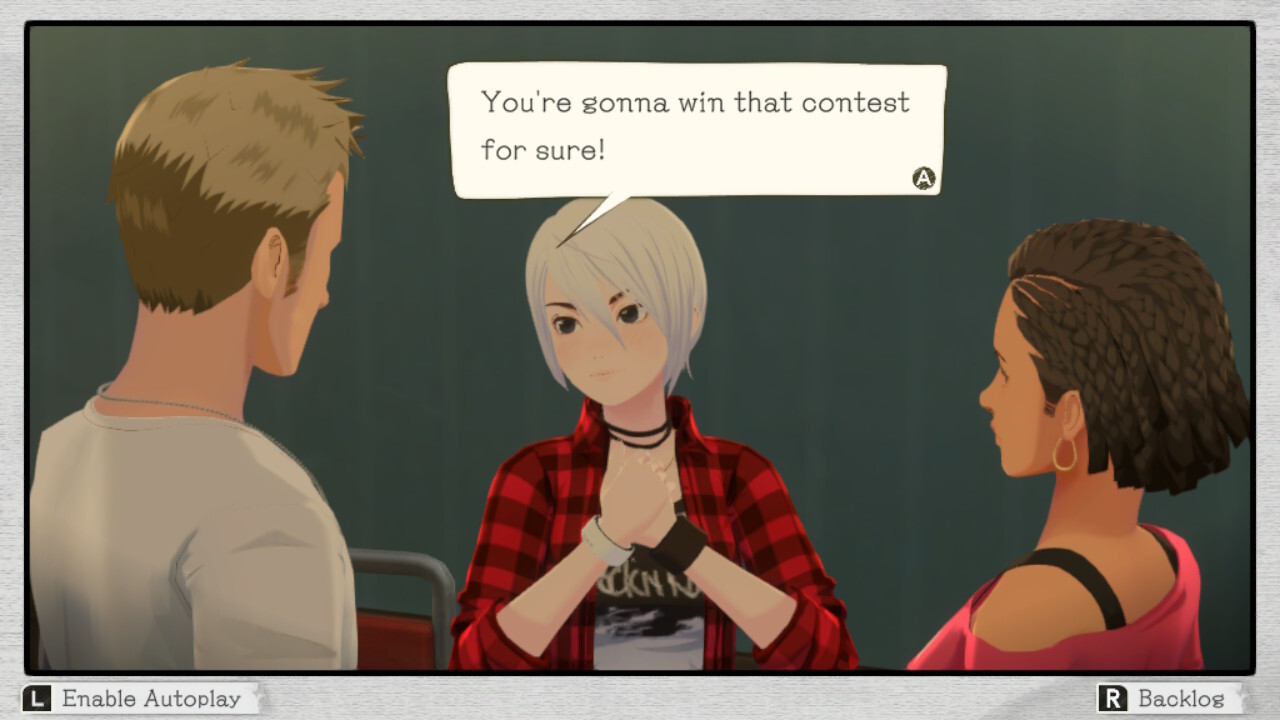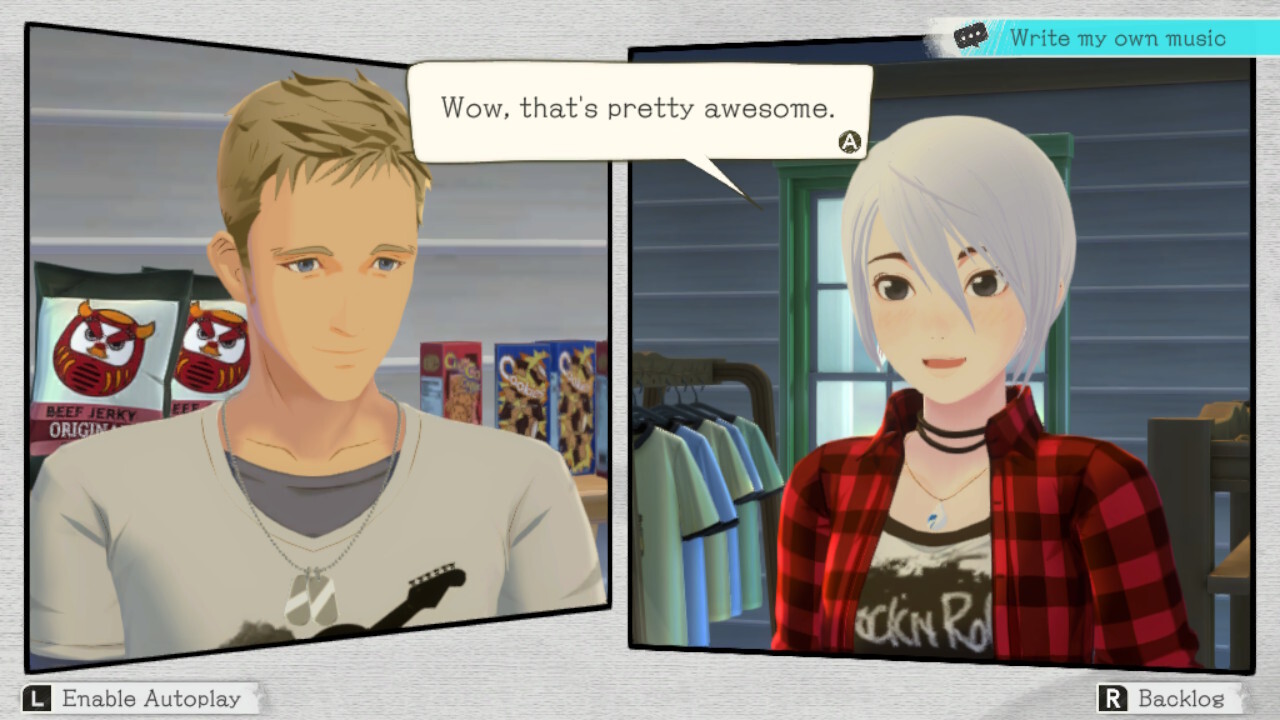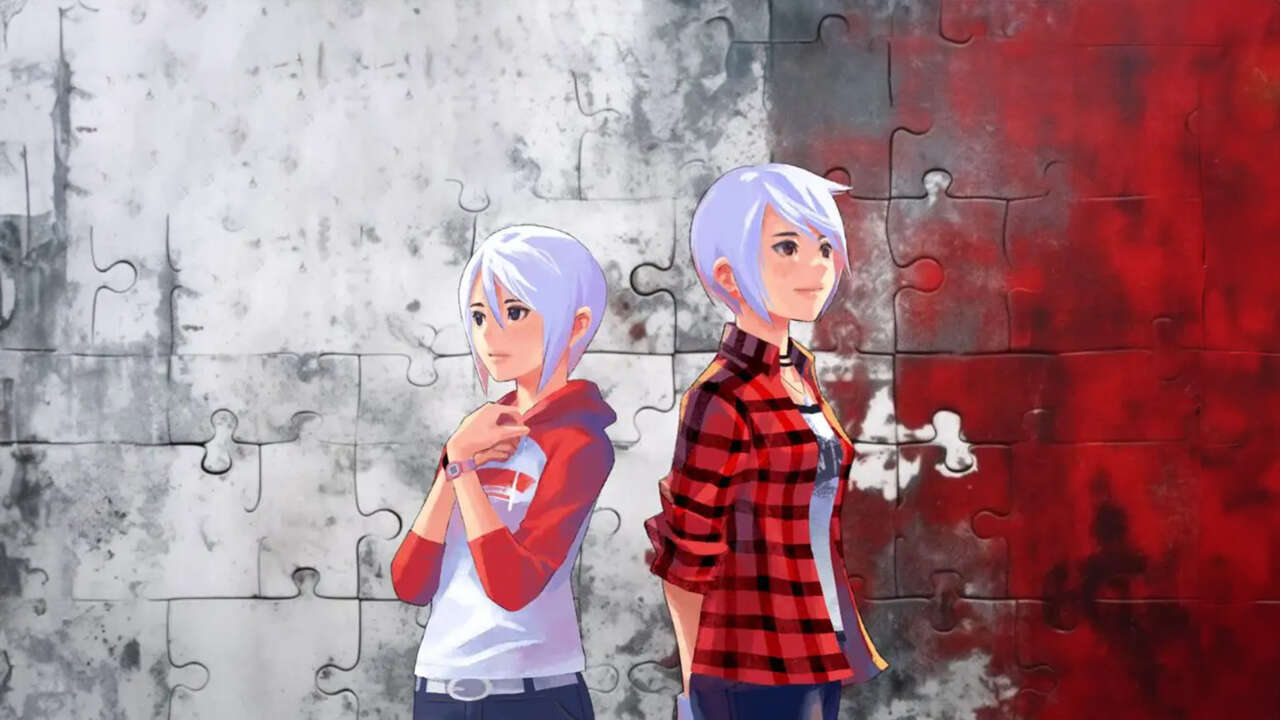I’ll admit upfront: I missed Another Code (known in North America as Trace Memory) when it first came out on Nintendo DS. Despite voraciously consuming other DS adventure games like Phoenix Wright, Ghost Trick, 999, and original Another Code developer Cing’s other title, Hotel Dusk, Another Code just slipped by me. And with the sequel, Another Code R, being a European Wii exclusive, catching up there wasn’t easy to do. So when Nintendo announced remakes of the two Another Code games for Switch, I was eager to correct those wrongs and see what the now-sadly-defunct Cing had put together. To my surprise, Recollection is fundamentally different from the originals in a number of ways–all-new visuals and updated puzzles, for example–and these quality of life improvements helped me appreciate the original game’s supernatural mysteries.
Another Code Recollection puts you in the role of Ashley, a young girl who tragically lost her mother at a very young age. Haunted by disturbing memories she can’t fully recall, Ashley receives an invite to a secluded island to meet with her long-absent father, and a strange-looking portable device called the DAS. On the island, she finds a well-preserved old mansion and a very unusual friend who also shares her lack of memory… but no dad. In the second part of the game, an older Ashley is invited to Lake Juliet for a camping trip that immediately goes south when her bag is pilfered. In the quest to get back her stuff, Ashley discovers the truths and tragedies of a conspiracy in the background of this placid lake.

Gallery
Ashley is a sympathetic character whose teenage angst over her absent parents is understandable. A lot of fictional teens can come off as obnoxious and self-centered, but Ashley’s complex feelings towards her absentee father are very relatable, as is her lingering trauma from the loss of her mother, and seeing her confront these issues over the course of the game and grow from them makes for great character development. The amount of characterization and background of the supporting cast varies by how big their role in the story is–D, your ethereal friend in part 1, gets significantly more background and development than most of part 2’s cast–but nobody comes off as particularly badly handled.
Both episodes are entertaining and the themes of memories, loss, and tragedy are handled quite well, with an overall message of needing to face the pain of your past head-on. The relaxed pacing and surprisingly down-to-earth feel (even with sci-fi and supernatural elements) is a nice contrast to the loud melodrama of many bigger titles. However, as a collection of mystery stories, Recollections lacks that special quality that really good mystery and suspense stories have: the spark that constantly pushes you to keep going to get to the next juicy revelation or confirm your theories. While the overall laid-back feel here is pleasant, it gets in the way during those times when the game really is trying to up tension late in both episodes: it doesn’t feel genuine. For example: At one point you run into a strange building looking for Ashley’s aunt who seemed to be in danger, but the period of slow-paced exploration that follows doesn’t give real urgency to it. As a result, you have an overall story that flows well and successfully conveys its themes, but doesn’t leave a lasting impact the way many of the best adventure games do.
Another Code Recollection focuses on exploration over action and carries the player through a mostly-linear narrative with a few more open investigation bits. The DAS (and another gadget you acquire later) comes in handy during investigations, as it organizes all of the people you meet and their relationships, allows you to take photos for reference, keeps track of optional collectibles, and has a few other useful plot-important functions that venture into spoiler territory. Along the way, you’ll be solving a variety of logic puzzles with the aid of numerous found environmental items–keys, emblems, tools, documents, the usual adventure-game staples. You’ll utilize the multi-functionality of the DAS for some puzzles, taking photos, storing data, figuring out passwords, and even doing a bit of good old-fashioned hacking to progress. Some puzzles also take advantage of the gyro functions of the Switch Joy-Cons, requiring you to tilt to shake an object loose or roll a round ball into place. They’re enjoyable and don’t venture too far into the realm of outlandish solutions (though you’ll probably wonder why so many characters are very bad at password security).
Recollection doesn’t take the route of a basic remaster for these two games: it’s a full-fledged remake, complete with all-new 3D visuals, lots of voice acting for central characters, and cinematic cutscenes for key story moments. The voiceover is well done (aside from a handful of awkward takes) and lends even the side characters, like the boat captain and the wannabe garage bandmates, an extra dash of personality, and the cutscenes never feel overly long or out-of-place. The melodic, atmospheric soundtrack also adds a pleasant backdrop to Ashley’s exploration.
The same praise can’t be given to the visuals, however: while the character models look great, the backgrounds suffer from some shockingly muddy, low-res textures and painfully low-poly models. This game was never meant as a visual showcase, but with how much time you spend investigating various locales, it’s impossible not to notice how gross many textures look. Given developer Arc System Works’ history of amazing visuals in their recent projects, the ugly backgrounds are a disappointment.
Recollection also redoes elements of the game’s puzzles and story. The overall narrative beats of the plot remain the same as the original games, though there are a fair few new surprises for series veterans. And if you’re going into these games with an old Another Code or Another Code R walkthrough in hand, you’ll find them completely useless, as all of the old puzzles have been scrapped and replaced with new brain teasers. Don’t worry too much if you’re not the best puzzle-solver, though, as intuitive hints and next-goal functionalities have been added to the game, and can be turned on and off as you please. The hint function is especially nice, offering a three-step aid: the first two hints are pointers in the right direction, while the third is the solution.

Gallery
Since I’m a newcomer to the series, I can’t really say how longtime fans will feel about the puzzle and narrative changes. I can say, however, that I found most of the puzzles to be at a very comfortable challenge level: none of them felt poorly designed or particularly obtuse. The only elements I disliked were some puzzles where you had to refer back-and-forth to photos you’d taken or mash through dialogue boxes when switching from one element (the DAS, map, or item screen) to the other. Generally, if I felt lost during a puzzle, a simple hint was enough to get me on the right track.
The word that really sticks in my mind when describing Another Code Recollection is “pleasant.” I never felt particularly annoyed at any point while I was playing, but I never felt a particularly strong sense of engagement, either. I just happily rode along with Ashley on her journey of self-discovery and mystery-solving until we both reached the end. I doubt I’ll remember much about the game a couple of years from now, but it was a sweet little escape on a cold winter week. And sometimes, that’s all a game really needs to be.

